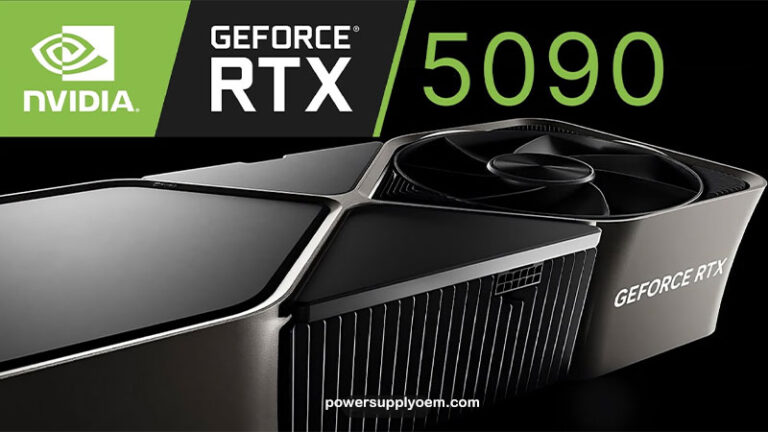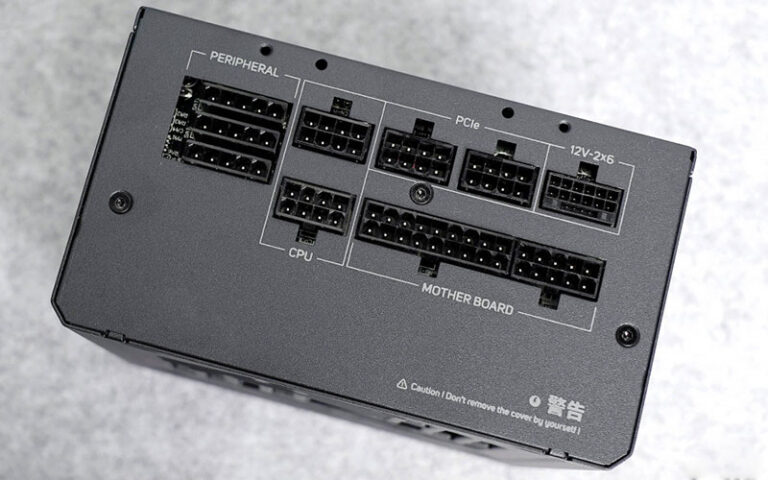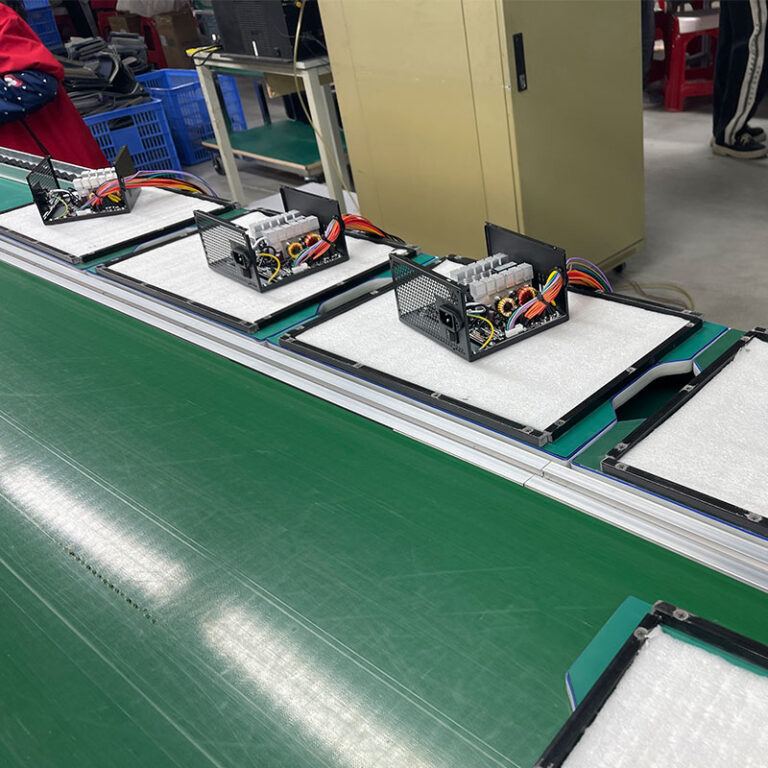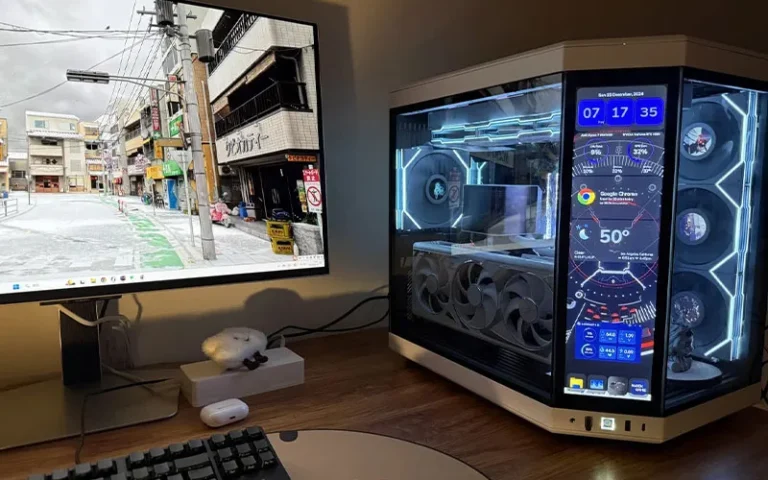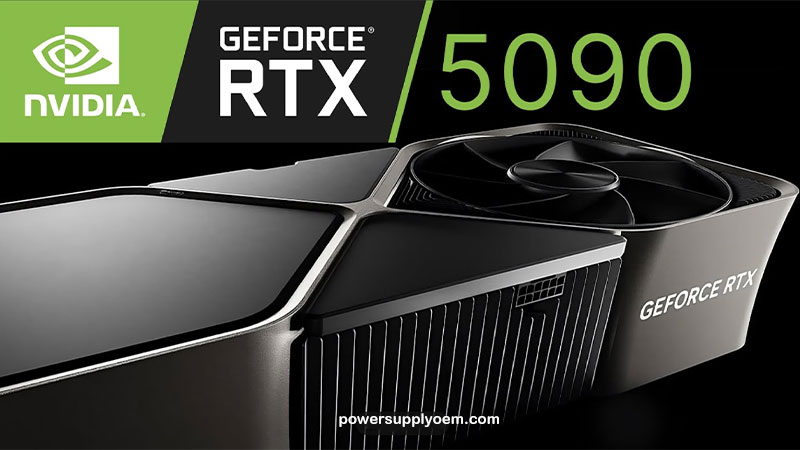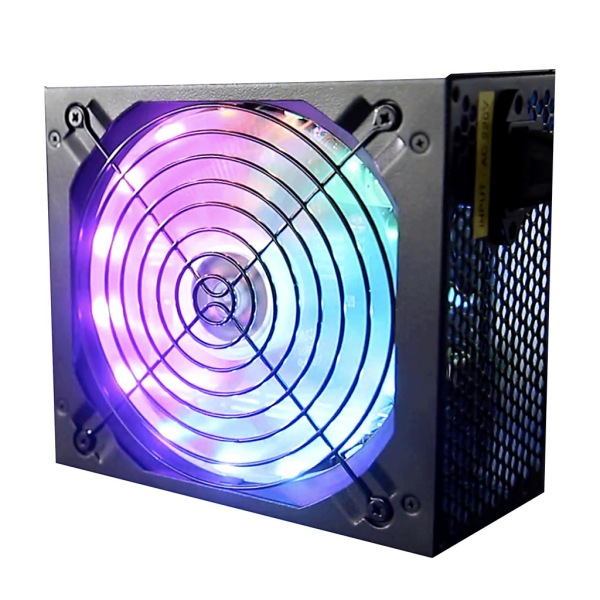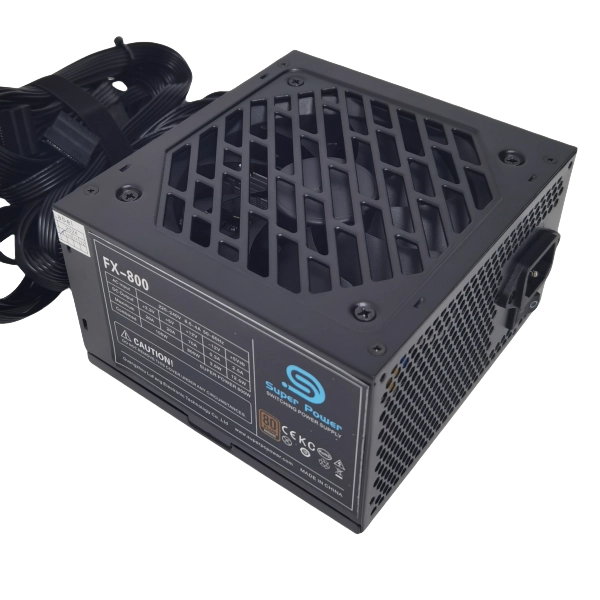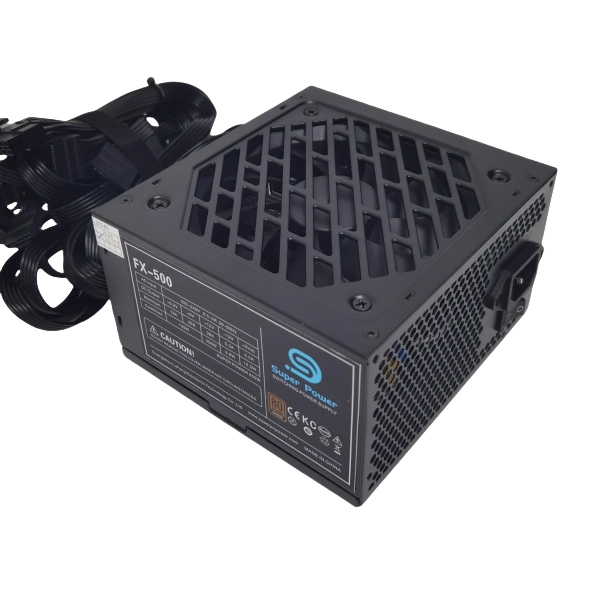-
Building E, No. 65 Xingshan North Road, Liangtian, Baisha Industrial Park, Baiyun District, Guangzhou
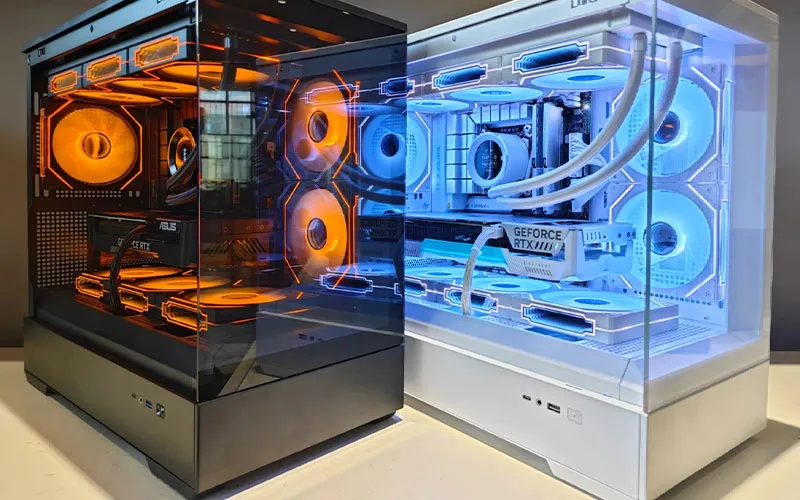
Are PSUs Universal? Understanding Power Supplies for Your PC
Understanding Power Supplies (PSUs): A Comprehensive Guide to Cables, Connectors, and Form Factors for Desktop Computers
This comprehensive guide delves into the world of power supplies (PSUs) for desktop computers, covering everything you need to know about cables, connectors, form factors, wattage, and reliability. Whether you’re building a new PC, upgrading an existing one, or simply trying to understand how your computer gets its power, this article will provide valuable insights. We’ll explore different PSU types, explain key specifications, and help you choose the right power supply unit for your needs. If you are a PC power supply brand, 3C supermarket, Computing equipment manufacturers, IoT device manufacturers, power supply wholesaler, agent, or a large Internet cafe, this guide is for you.
Table of Contents
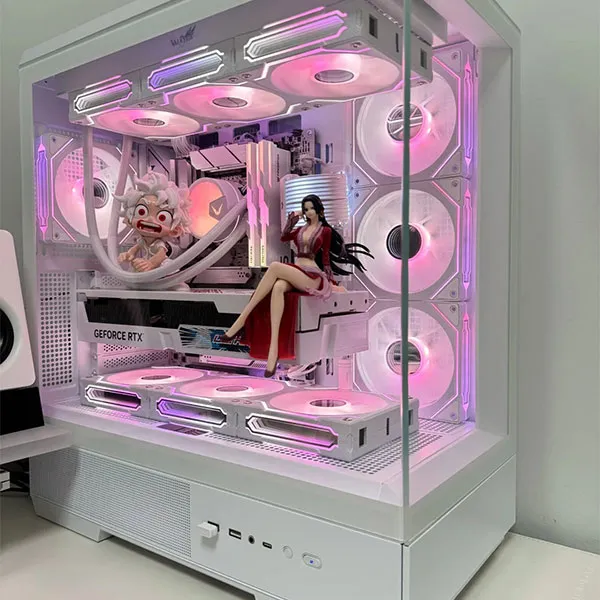
1. What is a PSU and Why is it Important?
A power supply unit (PSU) is a critical component inside your desktop computer that converts the alternating current (AC) power from your wall socket into the direct current (DC) power that your computer’s internal components need to function. It’s the heart of your PC’s power system. Many power supplies offer consistent performance.
The PSU is important because:
- Provides Power to All Components: The PSU delivers power to the motherboard, CPU, GPU, storage devices (SSDs and hard drives), fans, and other peripherals.
- Ensures System Stability: A reliable PSU provides stable and consistent power, preventing system crashes, freezes, and unexpected shutdowns.
- Protects Components: Good power supplies include protection features (like over-voltage, under-voltage, and short-circuit protection) that safeguard your components from damage due to power fluctuations.
In essence, the PSU is the foundation of your computer’s power system, and choosing a reliable unit is essential for a stable and well-functioning PC.
2. PSU Form Factors: ATX, SFX, TFX, and FLEX
Form factor refers to the physical size and shape of the PSU. Choosing the right form factor is essential because the PSU needs to fit inside your PC case. Here’s a breakdown of the main options that power supplies come in:
- ATX: The most common form factor for standard desktop PCs. ATX power supplies offer a wide range of wattage options and features. The standard ATX power supply is very popular. The ATX form factor is very versatile.
- SFX: A small form factor designed for compact PC builds. SFX PSUs are smaller than ATX units but might have lower maximum wattage ratings.
- TFX: An even smaller, thinner form factor typically found in slimline or very compact desktop PCs.
- FLEX: A compact form factor, like SFX.
Make sure your PSU will fit in your case. You need to be sure your PSU will fit inside your PC. Always check your PC case’s specifications to determine the compatible PSU form factor. Using the wrong form factor will prevent you from installing the PSU correctly. The PSU form factor is very important. We offer various form factors, including ATX Power Supply, SFX Power Supply, FLEX Power Supply, and TFX Power Supply.
3. Understanding Wattage and Power Output
Wattage is the primary specification of a PSU, indicating the maximum amount of power the PSU can deliver continuously. Power output is crucial. The amount of power the PSU can provide is key. Power supplies are designed for specific wattages. Determining your system’s power requirements is essential for choosing a PSU with sufficient wattage:
- Too Little Wattage: An underpowered PSU can lead to system instability, crashes, shutdowns, or even component damage.
- Too Much Wattage: A vastly overpowered PSU is generally safe, but it’s unnecessary and can be less efficient at lower loads.
To estimate your power needs, consider the power consumption of all your components (CPU, GPU, motherboard, RAM, storage, etc.). Online PSU calculators can simplify this process. You need to choose the right wattage. It is important to consider how much power you need.
4. PSU Efficiency Ratings: 80 PLUS Certification
The 80 PLUS certification is a voluntary program that indicates a PSU’s efficiency rating. It guarantees that the PSU will be at least 80% efficient at 20%, 50%, and 100% load, meaning it wastes less energy as heat.
Here’s a breakdown of the 80 PLUS tiers:
- 80 PLUS: Basic efficiency.
- 80 PLUS Bronze: Slightly higher efficiency.
- 80 PLUS Silver: More efficient.
- 80 PLUS Gold: High efficiency. Our 80 plus gold 850w power supply is an example.
- 80 PLUS Platinum: Very high efficiency.
- 80 PLUS Titanium: The highest efficiency rating.
A higher efficiency rating translates to lower electricity bills, less heat generation (and therefore, potentially quieter operation), and often indicates higher-quality internal components. Higher efficiency is always better.
5. Modular vs. Non-Modular vs. Semi-Modular Power Supplies
Power supplies come in three main cabling configurations:
- Non-Modular: All cables are permanently attached to the PSU. This can make cable management more challenging, as you’ll have to deal with unused cables.
- Semi-Modular: Some cables (usually the essential ones like the 24-pin ATX and CPU power cables) are permanently attached, while others are detachable. This offers a better balance between convenience and cable management.
- Modular: All cables are detachable, allowing you to use only the cables you need. This provides the best cable management and airflow, resulting in a cleaner and potentially cooler system. Modular power supplies are very popular.
Modular power supplies are the best option for cable management. For most PC building enthusiasts, modular or semi-modular power supplies are preferred for their cleaner builds and easier cable management.
6. Essential PSU Connectors: 24-Pin ATX, EPS/ATX12V, PCIe, SATA, Molex
Here’s a breakdown of the essential connectors found on modern power supplies:
- 24-Pin ATX Connector: This is the main power connector for the motherboard. It provides power to various motherboard components. The connector provides power to the main board. This is a very common connector.
- 8-Pin (4+4 pin) EPS/ATX12V Connector: This connector provides power to the CPU. Some high-end motherboards might have two of these connectors for additional processor power. The 4-pin is part of the overall connector.
- PCIe Connectors (6-pin or 8-pin): These connectors provide power to the GPU (graphics card). High-end gaming graphics cards may require multiple PCIe connectors.
- SATA Power Connectors: These connectors provide power to SSDs and hard drives. SATA power is very common.
- Molex Connectors: These are older connectors sometimes used for fans, older hard drives, or other peripherals. A molex connector is less common now.
Ensure the PSU you choose has all the necessary connectors for your components, with enough of each type. Power supplies can offer a variety of cables. You need to select the cables you need.
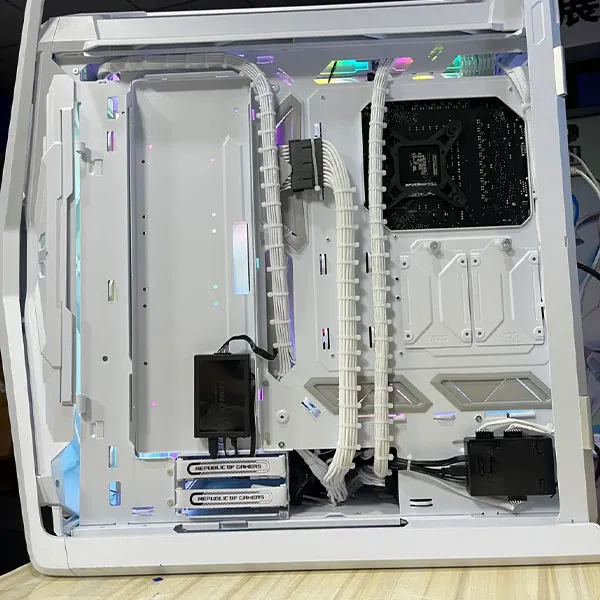
7. Cable Management: Keeping Your PC Tidy and Cool
Effective cable management is crucial for:
- Airflow: Uncluttered cables allow for better airflow through the PC case, helping to keep components cool.
- Aesthetics: A clean build with well-managed cables looks much better, especially if you have a case with a window.
- Maintenance: Well-organized cables make it easier to access and work on components in the future.
Here are some cable management tips:
- Route Cables Behind the Motherboard Tray: Most PC cases have space behind the motherboard tray for routing cables. Use this space to hide as many cables as possible.
- Use Zip Ties or Velcro Straps: Bundle cables together and secure them to the case using zip ties or Velcro straps.
- Utilize Cable Management Holes: Many PC cases have holes or cutouts specifically designed for cable routing. Use these to your advantage.
Taking the time to manage your cables properly will result in a cleaner, cooler, and more maintainable PC.
8. Choosing the Right PSU: Matching Your Needs
Here’s a summary of factors to consider when choosing a PSU:
- Wattage: Calculate your system’s power requirements and choose a PSU with sufficient wattage, plus a buffer for future upgrades.
- Form Factor: Select the correct form factor (ATX, SFX, TFX, FLEX) for your PC case.
- Efficiency Rating: Choose an 80 PLUS certified PSU (Bronze, Silver, Gold, Platinum, or Titanium) for better energy efficiency.
- Modularity: Consider modular or semi-modular power supplies for easier cable management.
- Connectors: Ensure the PSU has all the necessary connectors for your components.
- Reliability: Choose a PSU from a reputable brand with a good warranty.
- Budget: Set a budget.
By considering these factors, you can select a PSU that will provide reliable and efficient power to your system for years to come. Choose a PSU wisely.
9. OEM Power Supplies: Partnering for Customized Solutions
As an OEM (PC power supply, ATX power supply, SFX power supply, FLEX power supply, TFX power supply, 80 PLUS Gold) manufacturer, we specialize in providing custom power solutions. We work with a variety of clients, including:
- PC Power Supply Brands: We can help provide the quality and reliability you need.
- 3C Supermarkets: We offer a wide range of options at affordable prices.
- Computing equipment manufacturers: We can offer custom solutions.
- IoT device manufacturers: Our products can be used in various devices.
- Power Supply Wholesalers: We offer bulk orders and customizations.
- Agents: Our team offers constant support.
- Large Internet Cafes: We have the capabilities for large-scale production.
Here’s how partnering with us can benefit your business:
- Customization: We can tailor power supplies to your exact specifications, including wattage, form factor, connectors, cabling, and branding.
- Quality: We use high-quality components and rigorous testing procedures to ensure the reliability and performance of our power supplies.
- Cost-Effectiveness: Buying directly from the manufacturer often results in better pricing, especially for bulk orders.
- Expert Support: Our team provides technical support and guidance throughout the design and manufacturing process.
Working directly with an OEM manufacturer gives you greater control over the quality, specifications, and cost of your power supplies. We offer many PC power supplies.
10. Case Studies: Power Supply Success in Diverse Applications
Here are some examples of how our power supplies have been successfully used in various applications:
- Case Study 1 (Gaming PC): A high-end gaming PC builder chose our 850W 80 PLUS Gold modular power supply for their flagship systems. The PSU’s high wattage, efficiency, and modular design provided ample power for demanding components and allowed for clean cable management.
- Case Study 2 (Compact Workstation): A manufacturer of compact workstations selected our SFX power supply for their small form factor systems. The SFX PSU’s compact size and high efficiency were ideal for their space-constrained designs.
- Case Study 3 (Industrial Control System): An industrial automation company used our custom-designed power supply for their control systems. The PSU was designed to withstand harsh environmental conditions and provide reliable power in a demanding industrial setting.
- Case Study 4 (3C Supermarket): We partnered with a 3C Supermarket to produce a line of affordable, high-quality power supplies.
These case studies demonstrate the versatility and adaptability of our power supply solutions across a wide range of applications.
Frequently Asked Questions
What happens if I choose a PSU with too little wattage?
Your system may experience instability, random shutdowns, crashes, or it may not even power on at all.
Can I use a PSU with a higher wattage than I need?
Yes, you can. It won’t damage your components, but it may be less efficient than a PSU with a wattage closer to your actual needs. Using less power is ideal.
What’s the difference between modular, semi-modular, and non-modular power supplies?
These terms refer to the PSU’s cabling. Modular power supplies have all detachable cables, semi-modular power supplies have some detachable cables, and non-modular power supplies have all cables permanently attached.
What does the 80 PLUS certification mean?
The 80 PLUS certification indicates a PSU’s efficiency rating. A higher rating (e.g., 80 PLUS Gold) means the PSU is more efficient, converting more of the AC power from the wall into usable DC power and wasting less energy as heat. You want an efficient power supply.
How do I know which connectors I need?
Check the specifications of your components (motherboard, CPU, GPU, storage devices, etc.) to determine their power connector requirements.
How long do power supplies last?
Many last 5-10 years.
What wattage do I need?
This depends on the components, such as the CPU, GPU and motherboard.
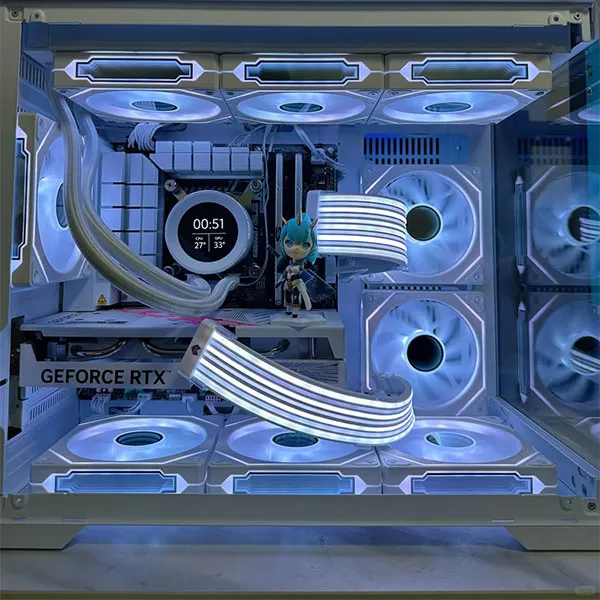
Summary
- Power supplies (PSUs) are essential components in desktop computers, converting AC power to DC power for internal components.
- Choose the correct PSU form factor (ATX, SFX, TFX, FLEX) for your PC case. Our power supplies come in many options.
- Determine your system’s wattage needs and choose a PSU with sufficient power output.
- Consider the 80 PLUS efficiency rating for energy savings and reduced heat.
- Modular or semi-modular power supplies offer better cable management.
- Ensure the PSU has all the necessary connectors (24-pin ATX, EPS/ATX12V, PCIe, SATA, Molex) for your components.
- Effective cable management improves airflow and aesthetics.
- As an OEM power supply manufacturer, we offer customized solutions tailored to your specific requirements.
- Partnering with us provides access to expertise, quality, cost-effectiveness, and customization options.
- We offer a wide range of power supplies for various applications, from gaming PCs to industrial systems.
- This guide will help you to choose a PSU.
- We can provide the right PSU for your needs.

